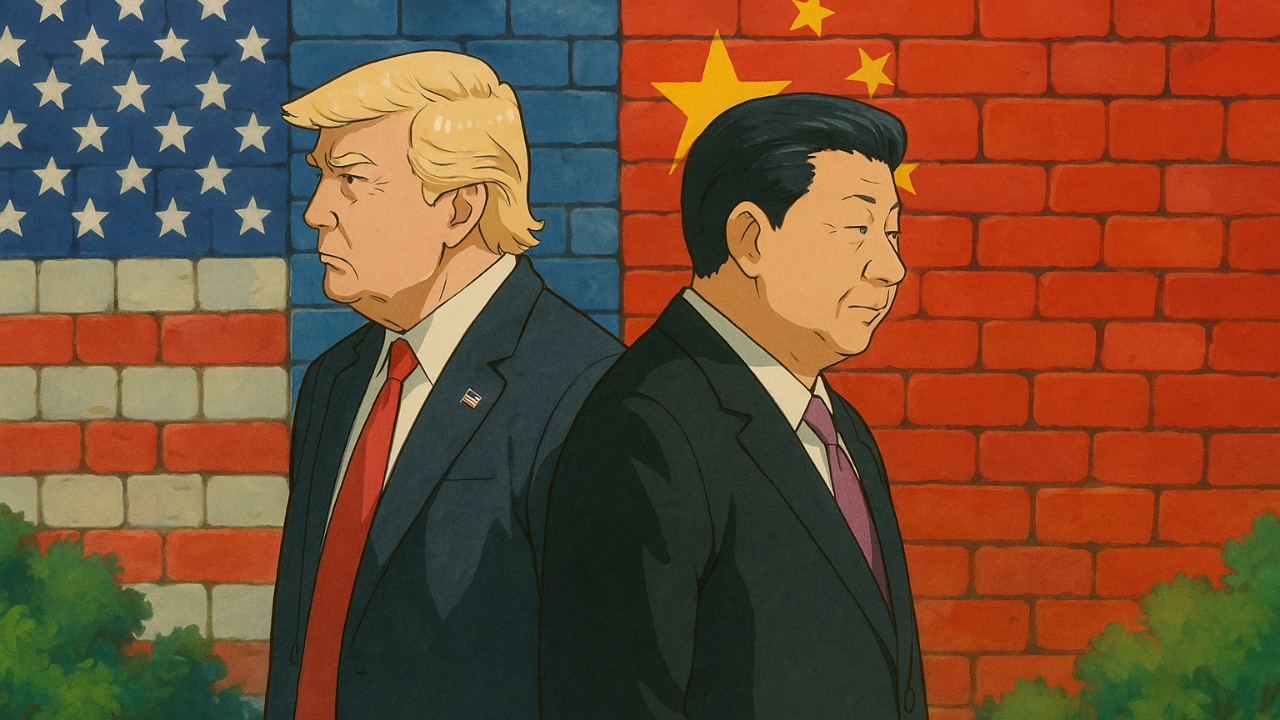When Trump signals potential end to US-China trade war, global markets listen—closely. The former president’s latest comments, hinting at a possible resolution to the long-standing economic standoff between the two largest economies, come at a moment of deep uncertainty in the global trade environment. Although Trump’s words have always been a proponent of high stakes negotiations however, his latest tone led to speculation that the tough stance towards China could be finally giving the way to a more tolerant policy. In this highly complex world of geopolitics, how will China react?
The war on trade between China and the United States started during the Trump presidency in the year 2018, started by imposing sweeping tariffs on a plethora of billions in Chinese imports. The reason for this? Stopping unjust trade practices ensuring the playing level for American manufacturing companies, and taking care of increasing concerns about intellectual property theft as well as state-sponsored market manipulation. China was retaliatory in a TIT-for-TAT dispute that shook global supply chains, pushed up prices for consumers and businesses and shook markets in the financial sector across the globe from Shanghai up to San Francisco.
Today, a decade after, and with the economic repercussions evident and tensions over trade reshaping relationships throughout Asia and Europe Trump’s proposal of opening trade borders has significant significance. At a recent presidential campaign occasion, Trump floated the notion that talks with China might resume if there are proper conditions. It was a striking departure away from the harsh stance that characterized his first campaign.
In the case of businesses, especially in the fields of manufacturing, technology and agricultural sectors These signals could be an opportunity to breath a breathing of fresh air. Industries battered by tariffs have spent the better part of a decade navigating unpredictability–stockpiling goods, rerouting supply chains, or in some cases, exiting markets entirely. The possibility of a softer approach to trade policy might ease pressures on these industries which could reduce costs, and helping restore confidence in investors. But, there is no consensus that the complete repeal of trade policy is likely.
China is, on the other hand has reacted with caution. The Chinese government officials in Beijing are calling for dialog, but are wary of US plans. The trade wars and restrictions not only harm China’s bottom line, they were the strategic messages. Beijing has spent the last several years building resilience, investing heavily in domestic innovation, and expanding trade ties with other economies through initiatives like the Regional Comprehensive Economic Partnership (RCEP) and the Belt and Road Initiative.
If Trump signals potential end to US-China trade war, China’s likely approach will be methodical. The Chinese leadership has long emphasized stability and pragmatism. They may be open to recalibrating the relationship—but not without assurances that the concessions will be mutual and durable. Beijing is also acutely aware of the US political cycle and is unlikely to make sweeping trade commitments without clarity on who will be in power come January 2025.
In terms of economics, China is also facing problems of its own: property sector instability, young unemployment and a slower than expected post-COVID recovery have all affected the outlook for growth. The ease of trade frictions with the US might provide some relief especially in the area of boosting trade and investment from abroad. But there is also growing consensus among Chinese policymakers that the country must decouple some of its reliance on American markets and technology, favoring self-reliance and domestic consumption instead.
This dynamic creates a fascinating moment in global diplomacy. If Trump, known for his transactional approach to foreign policy, is indeed considering a trade reset with China, it could reshape the narrative of his foreign policy legacy—and offer a rare opportunity to lower the temperature in a relationship that has defined much of 21st-century geopolitics.
Analysts are still split. Some view this as an attempt that aims to appeal to business executives as well as moderate voters prior to the election in 2024. Some believe that it will open the way to more sophisticated Republican policy towards China which balances the interests of China and national security concerns.
It’s not just about the enforcement. Any possible deal — whether new or a re-launch of prior accords–will require strong mechanisms for ensuring compliance. Something each side has struggled with before. In the case of Phase One agreement signed in January of 2020, that included commitments to protect intellectual property exchange practices, currency, as well as large purchase of American items from China was ultimately a disappointment of what was expected.
And let’s not forget the broader global context. As Trump signals potential end to US-China trade war, other nations—particularly in the European Union, Southeast Asia, and Latin America—are watching closely. A thaw in trade relations could shift competitive dynamics in everything from semiconductor supply chains to agricultural exports.
It’s too early to call this a breakthrough, but the mere suggestion of renewed dialogue is noteworthy. After years of escalation and economic decoupling, a return to the negotiating table could offer both sides a chance to reset—and perhaps even restore a measure of predictability to an otherwise volatile global economy.
In the end, whether Trump’s signals translate into concrete policy—or remain campaign-season posturing—remains to be seen. But what’s clear is this: when Trump signals potential end to US-China trade war, the world pays attention. And in the fragile dance of diplomacy, even a whisper can carry the weight of transformation.

